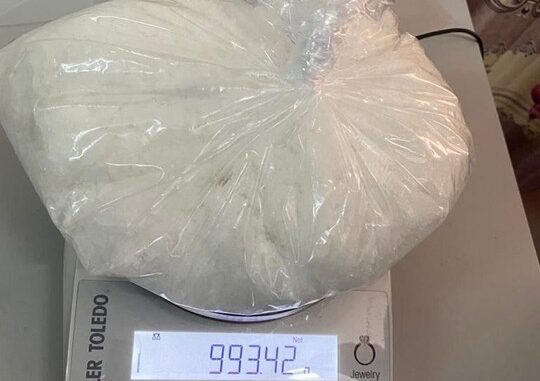
The Nigerian Bureau of Statistics, under President Bola Tinubu’s administration, has announced plans to include proceeds from illicit activities such as drug trafficking, prostitution, and other illegal activities in the country’s gross domestic product calculations.
On Thursday, the NBS revealed the move at a sensitisation workshop on GDP and Consumer Price Index rebasing, organised in collaboration with the Nigerian Economic Summit Group in Lagos.
Baba Madu, the NBS’ head of national accounts, explained that the inclusion of illegal activities in the GDP estimation aligns with best practices.
“Illegal activities will be in line with national best practices, specifically the System of National Accounts (SNA) 2008,” Mr Madu said. “If you are into, for instance, drugs, in some countries, it is this drug trade that drives their economy.”
It added, “It is illegal here because there is no legal backing. Similarly, prostitution generates income. Some individuals in this sector even live better than those in the formal economy. The SNA does not reject these activities, it is we who impose the restrictions.”
However, Mr Madu acknowledged challenges in accurately capturing the proceeds from illegal activities such as drug trafficking and prostitution, which he said usually constitute just 3.0 to 3.5 per cent of GDP.
“But the challenge is the legal backing and how we gather the data. And then, of course, there is the hidden economy. If I ask you how much you earn in a month, you will likely underreport your income,” Mr Madu stressed. “Or if someone starts selling provisions in a store and later turns to selling Indian hemp, those are the kinds of issues we face. These challenges exist worldwide. The good news is that these activities constitute less than 3.0 to 3.5 per cent of the GDP.”
In his opening remark at the workshop, Adeyemi Adeniran, statistician-general of the federation and CEO of the NBS, spoke on the importance of the GDP and CPI rebasing.
“The rebasing is a vital exercise that ensures our economic indicators are up-to-date and accurately reflect the economic realities on the ground,” Mr Adeniran said. “As economies evolve, new industries emerge, and consumption patterns shift, it becomes imperative to update our statistical measures to capture these changes.”
Mr Adeniran explained that rebasing “our GDP and CPI allows us to align with these transformations, providing a more precise and relevant picture of Nigeria’s economic landscape.”
Other sectors to be incorporated into the rebased GDP include the National Health Insurance Scheme, the Nigerian Social Insurance Trust Fund, the activities of modular refineries, and domestic households acting as employers of labour.
